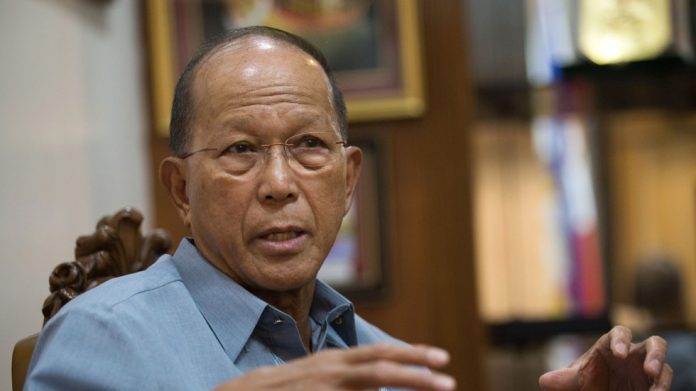
MANILA – Police and the Armed Forces were urged to lift the tattoo restriction on prospective recruits.
Banning “capable and well-meaning” people from military and police organizations on the basis of tattoos is “quite archaic,” according to Rep. Karlo Nograles.
But no less than Defense secretary Delfin Lorenzana was opposed to the idea – at least among military personnel.
“Tattoos are ugly and connote gangster image,” Lorenzana said in a message on Monday.
Nograles, House appropriations committee chairman, said the tattoo restriction was “quite archaic, if only because tattoos are no longer taboo in this day and age. Thus, we call for the removal of this ban.”
Police and the Armed Forces currently prohibit the enlistment of candidates with tattoos, said the congressman.
“I know a lot of people who have been declined application into the service on the basis of their having tattoos,” he said. “They said that it felt unfair to be rejected, and I can’t help but agree with them.”
Associating tattooed people with being criminals, rebels or undesirables in an organization is “very wrong,” said Nograles.
A tattoo is “not a good measure of one’s capabilities or heart on the battlefield,” the representative stressed.
“Like the nonsensical minimum height requirement of at least five feet … the no-tattoo rule must be done away with,” he said.
Commenting on the proposed lifting of the ban, Lorenzana said the military “would like to keep it that way,” just like its haircut requirement.
“The military imposes strict rules on haircut and even mustache, why not [on] tattoo?” he said.
Tattooing has long been a part of Filipino culture even before the Spanish colonizers came, Nograles argued.
“The Spanish conquistadores branded these Filipino warriors as the pintados because of their ornate and at times intimidating body markings,” he claimed. “Ultimately, the foreigners admired these painted people for their fierceness and courage.”
The Defense secretary insisted that “the [Philippine] Army is an old-fashioned organization in some ways.”
“We have standards of behaviors that harkens back to medieval times, and they are still relevant today – following orders, wearing approved uniform and badges, fitting into an organization, having a [regulated] haircut, regulated daily activities, be physically fit,” he said. (With Philippine News Agency/PN)



